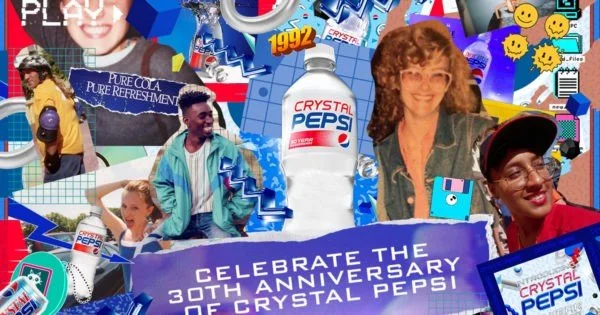Why Marketers Might Never Move Past '90s Nostalgia
From Lisa Frank-themed hotel rooms to Wayne’s World Super Bowl ads, 90s nostalgia is having a moment. I spoke with Adweek’s Paul Hiebert about nostalgia's role in marketing. Here’s what they wanted to know:
Why does nostalgia work in marketing?
“Nostalgia works in marketing because our brains default to efficiency, seeking patterns based on past experience whenever possible. Using something recognizable immediately captures attention—hey, I remember that—and intrigues us—what’s it doing here now? Nostalgia explains how Proust’s madeleine and inline roller skates can work as time machines.”
It’s now 2022. When should marketers shift their focus from ’90s-based nostalgia to the 2000s? And why?
“It’s a mistake to assume anyone’s attention or affections will shift smoothly ahead to the 2000s, this year or ever. Nostalgia has been a standard marketing lever for a very long time: Imperial Roman interior decorators made hay helping people reminisce about the ancient Egyptians, and early Victorian style was super hot, fin-de-siecle. Lots of people still love busts of Nefertiti and gingerbread woodwork. But we’re not nostalgic for every era, or even everything from the great times—pyramids and petticoats are never coming back. Certain periods stand out, whether for their style or political stability.”
Or does it all depend on the product/service being sold to a particular audience (e.g. clothing for Gen Z vs. a Mediterranean cruise for Baby Boomers)?
“Millennials and Boomers are nostalgic for the 90s because (in some ways) it was a gentler time: relatively unquestioned American exceptionalism, before social media or 9/11, the Great Recession and global-scale climate change and Covid not even imagined. For some, those were good times, and so many may stay attached to overalls, Nirvana and anything else associated with the Bush/Clinton years long past the coming year. For Gen Z (or anyone whose date of birth starts with a 2) fascination with the 90s is style-driven, and mostly ironically. There’s no telling yet what might take hold next for them, but irony is a fickle fuel for fads—the 2000s’ capri pants and early Britney probably aren’t it.
As unlikely as it seems to those of us who lived through them, the 90s have the right combination of ingredients to stay popular for a long time, or at least pop back up into culture periodically. Ancient Egypt has been trending off and on for over 1000 years now.”


